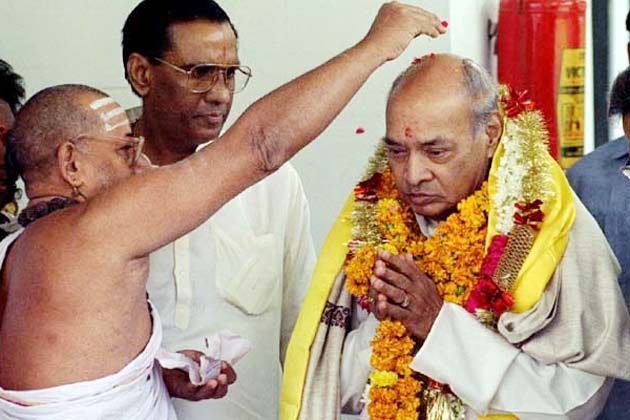
New Delhi, July 12: It's "absurd and laughable" to suggest that PV Narasimha Rao was indifferent to the December 6, 1992 demolition of Ayodhya's Babri Masjid and sequestered himself in his prayer room, a key aide to the then prime minister says of the events of the fateful day, whose repercussions are still being felt.
"It is absurd and laughable. They cannot target anybody else, as only this (hitting at Rao) will sell. It makes good news. They need someone to blame," Naresh Chandra, who had just stepped down as cabinet secretary and was special advisor to the prime minister at the time, said.
His reference was to two new books - a posthumously-published autobiography of veteran Congressman Arjun Singh and of journalist Kuldip Nayar - which contend that Narasimha Rao was "incommunicado" and "remained inside his puja room when the (Babri) mosque was being demolished".
Chandra, who also served as ambassador to US, admitted that he had not read the books and would reserve further comments on them till he had done so but was forthright in his condemnation of Narasimha Rao's "negative" projection.
"Would any official in the Prime Minister's Office have let him (Narasimha Rao) relax when the demolition was happening? The prime minister was continuously in touch with both (home minister SB) Chavan and (then home secretary Madhav) Godbole during the entire episode," a combative Chandra said.
"If at all anybody important was not in Delhi on that day it was Arjun Singh (then the human resource development minister) himself. People give their views according to what they know or assume they know," Chandra contended.
He said the key issue in the days leading up to December 6 was whether president's rule could have been imposed in Uttar Pradesh by dismissing the Bharatiya Janata Party government of Kalyan Singh.
"This is an issue nobody is talking about. But the prevailing view then was that since Kalyan Singh has given assurances to the Supreme Court and the National Integration Council, dismissing the government using Article 356 would have meant that the opposition parties would have jumped at the Rao government," he said.
"Whether Article 356 was legally or constitutionally possible then, only an expert lawyer can say," he added.






Comments
Add new comment